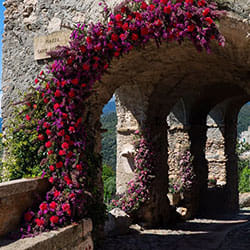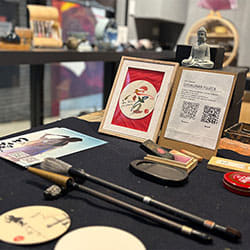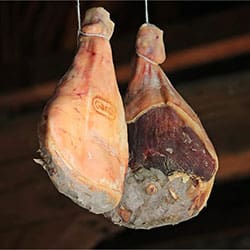Back to “salaryman,” though. The word “salary” is taken from the English word for regular payment, but in ancient times, people were paid for work with salt rather than with money. Most Japanese people know that the word “salary” is derived from salt, but not from their own history. The practice actually started in ancient Rome. One piece of evidence is the Roman road Via Salaria, which got its name because it was the route along which salt was carried in those days. It is said that the salt trade is actually what led to the birth of Rome, and that the ancient Romans threw themselves into developing their roads because they knew that they were the key to growing their city.

Northern Italy also has several roads that take their name from salt. One of these is the route along the Italian Riviera, which extends to the seaside towns of Southern France. This road developed to transport salt collected in seaside towns to mountain villages in the interior, where it was critical for preserving food.
Incidentally, the salt transported along the Riviera route was heavily taxed, meaning that the people in the mountain villages had to pay a steep price for it. The Piedmont region, for example, is known for its delicious wines as well as its abundance of dairy products and meat-based cuisine. I’d figured that there must have been a time when business transactions involved exchanging fine Piedmont wines for coastal salt, but it turns out that the wine production era and the salt-based payment era didn’t exactly overlap.
Another idea that the traders came up with to evade the high salt taxes was hiding salt in barrels of salt-packed anchovies. The bottom of the barrel was pure salt, while the top was covered in the salted anchovies. Did this really fool the government agents?

It’s fascinating to learn that this was how modern anchovies got their start—and it’s also interesting that bagna càuda, the classic Piedmont homestyle dish made from anchovies, got its start this way as well. Even more interesting is that the route through the Piedmont foothills along which cattle and donkeys transported the salt-packed anchovies became known as the Via de Sale, or Salt Road. Today, it’s a popular mountain biking and hiking trail, but even for someone like me who doesn’t bike or hike, it’s a place that would be great to visit for its endless panoramic views.
Speaking of traditional Piedmont dishes, one that will both amaze you and put a puzzled grin on your face is a kind of tiny ravioli called agnolotti dal plin that is served with dried herbs. Eating it makes you feel a bit like livestock wondering if you’re supposed to be eating the dried herbs.
So what do you say to trying some dried herb dishes while thinking back on how the salaryman smuggled salt during the days of exorbitant salt prices?































































